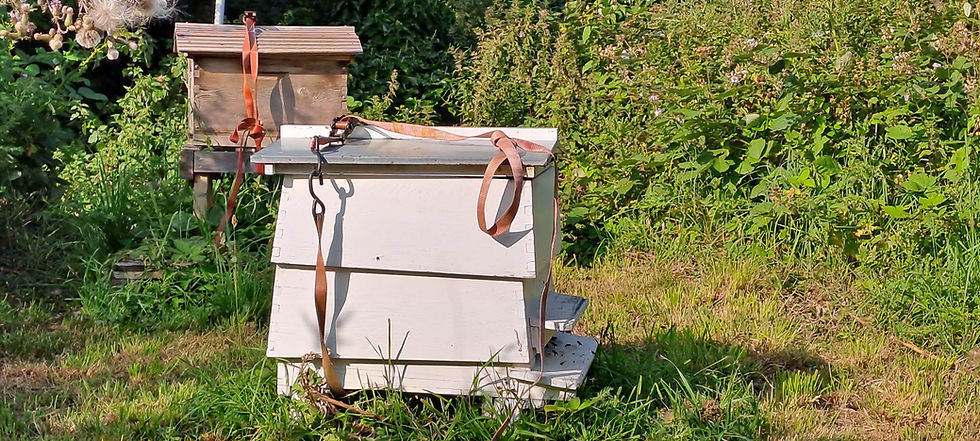JERSEY BEEKEEPERS'
ASSOCIATION

Who to contact
If you come across a swarm it should be reported immediately to the following contact.
John Deans
East Jersey Swarm Coordinator
07797 725176
Tony Kiirk
West Jersey Swarm Coordinator
07700 721448
Swarms
The Jersey Beekeepers’ Association is able to offer a honeybee swarm collection service and find an appropriate home for them. The swarm collectors are suitably experienced members of the JBKA that are insured for carrying out beekeeping activities, both at their own apiaries and whilst collecting swarms. The JBKA follow the BBKA Swarm Collectors Protocol.


What does a Honeybee
Swarm look like?
A mass of flying bees. People should stay back, go indoors and close windows. The bees will usually move away or settle. If they settle they should not be disturbed.
A settled swarm. A mass of gathered bees on a wall, roof, branch, bush or occasionally other stranger places … the underside of a trampoline! The mass may be smaller than a football to a couple of footballs in size, sometimes hanging in a “teardrop” shape. Some bees will be flying to and from the swarm, but generally, if not disturbed they will be quiet and present little risk.
A typical swarm collection

Coordinators will arrange for a swarm collector to contact the reporter, provide advice and hopefully be able to have the swarm collected and given a new home.
Jersey Beekeepers' carry out this service on a voluntary basis and may not be able to attend immediately. Depending on the circumstances, it is not always possible to collect every swarm, for example if they are too high up or inaccessible. Generally, if they cannot be collected they will move off and find a new home of their own.
Each year we get calls about swarms taking up residence in chimneys. If this happens, the options are usually limited, but might include:
-
Lighting a smoky fire as quickly as possible to drive the bees out of the chimney.
-
If you have access from below, as a last resort, contacting a pest controller to see if they can destroy the colony of bees.
-
If you are going to do anything, it is important to act fast before the bees have a chance to build wax comb, raise brood and store honey. Once that happens it is much more difficult to remove them.

Get in touch with
any questions
If you are wanting to join the
Jersey Beekeepers' Association inquiries should be directed to
For details of our services or upcoming events
.png)